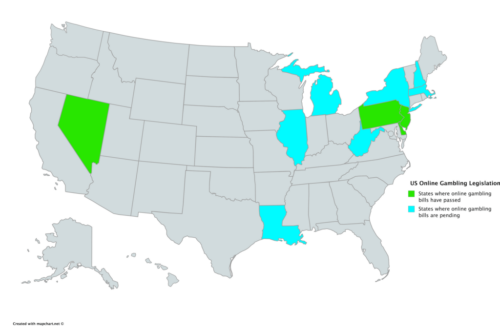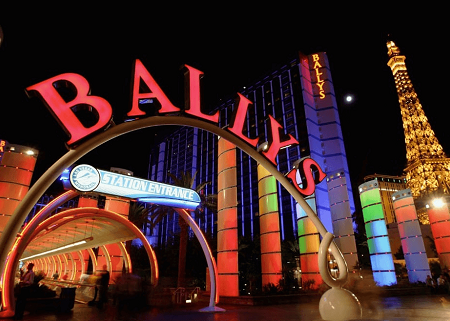 The global casino gaming industry has experienced significant growth over the years, contributing to economic development and entertainment opportunities. However, studying and comparing casino gaming regulations across different countries is imperative with its potential benefits and risks. This comparative analysis sheds light on the diverse approaches to regulating the industry, highlighting their impact on the sector, economy, and society.
The global casino gaming industry has experienced significant growth over the years, contributing to economic development and entertainment opportunities. However, studying and comparing casino gaming regulations across different countries is imperative with its potential benefits and risks. This comparative analysis sheds light on the diverse approaches to regulating the industry, highlighting their impact on the sector, economy, and society.
Overview of Casino Gaming Regulations
Examining the key elements commonly covered by these regulations is crucial to understanding casino gaming regulations’ complexities.
- Licensing Requirements: Most countries require casinos to obtain licenses to operate legally. The licensing process involves stringent background checks, financial assessments, and compliance with specific operational standards.
- Age Restrictions: Casino gaming regulations typically establish minimum age limits for participation to prevent underage gambling and protect vulnerable individuals.
- Taxation: Governments often impose taxes on casino revenues to generate revenue for public purposes. Tax rates and structures vary significantly across different jurisdictions, influencing the economic viability and profitability of the industry.
- Responsible Gambling Measures: To address concerns related to gambling addiction and promote responsible gambling practices, regulations may require casinos to implement self-exclusion programs, provide information on problem gambling helplines, and offer training to staff members on responsible gambling.
Comparative Casino Gaming Regulations Analysis
This section will delve into a comparative analysis of select countries’ regulatory frameworks, highlighting their unique characteristics, similarities, differences, and approaches.
- United States: The United States has a complex regulatory landscape due to the coexistence of federal and state regulations. While federal laws set a minimum standard, each state has the authority to determine its rules regarding casino gaming. This has resulted in variations in licensing requirements, tax rates, and even the legality of casinos across different states.
- United Kingdom: The United Kingdom has a well-established regulatory framework overseen by the UK Gambling Commission. The rigorous licensing process ensures that operators meet strict standards of probity and consumer protection. The UK also emphasizes player safety through extensive responsible gambling measures, including self-exclusion programs and mandatory funding for treatment services.
- Macau: As the world’s largest gambling hub, Macau has implemented robust regulations to ensure the integrity and stability of its gaming industry. The Macau Gaming Inspection and Coordination Bureau oversees licensing, taxation, and rules enforcement. Macau also focuses on responsible gambling initiatives and enforces strict anti-money laundering measures.
 Casino Gaming Regulations Case Studies
Casino Gaming Regulations Case Studies
To gain further insights into the effects of different regulatory approaches, we will examine a few case studies and their outcomes.
- Australia: Australia has a long-standing casino gaming history, and its regulatory approach has evolved. The introduction of electronic gaming machines, commonly known as “pokies,” led to a surge in gambling-related issues. As a result, Australia implemented harm minimization measures, such as mandatory pre-commitment systems and bet limits, to address problem gambling.
- Singapore: Singapore introduced integrated resorts with casinos to boost tourism and economic growth. However, recognizing the potential social impact, the government implemented strict regulations to mitigate problem gambling. These measures include high entry fees for locals, strict exclusion orders, and a comprehensive self-exclusion program.
Implications and Future Perspectives
Regulations in the casino gaming industry have far-reaching implications for various stakeholders. They impact the industry’s growth, local economies, and societal well-being. Furthermore, emerging trends and technological advancements have given rise to new challenges and opportunities for regulation.
The emergence of online gambling and mobile gaming platforms has prompted the need for updated regulatory frameworks to address concerns related to accessibility, responsible gambling, and consumer protection. Moreover, integrating blockchain technology and cryptocurrencies in the industry presents regulatory and security challenges that need to be addressed.
Conclusion
The comparative analysis of casino gaming regulations across different countries highlights the diversity of approaches and their respective impacts. Moreover, it is crucial for policymakers and industry stakeholders to collaborate and continuously research best practices. By doing so, they can ensure responsible and sustainable casino gaming practices, foster effective oversight, and promote the well-being of both the industry and society at large.
By prioritizing player protection, responsible gambling measures, and effective oversight, regulations can balance promoting economic growth and safeguarding societal well-being. As the industry continues to evolve, it is essential to adapt regulatory frameworks to address emerging trends and technological advancements, fostering an environment where the benefits of casino gaming can be maximized while minimizing potential risks.









